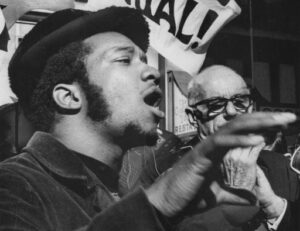A movement is needed more than ever to defend a woman’s right to choose
The United States Supreme Court, in another sharply divided abortion rights decision, struck down a Louisiana statute that would have required doctors performing abortions in that state to have admitting privileges at local hospitals. The requirement was widely understood by women´s rights advocates as a means of curbing access to legal abortions in Louisiana since few of the doctors still providing this service in the state have such privileges. If sustained, the statute would have had the practical effect of restricting access to abortion in Louisiana to just one city—New Orleans—thereby precluding poorer women in other parts of the state from obtaining a safe, legal abortion.
Chief Justice John G. Roberts, Jr. cast the decisive fifth vote along with what is often referred to as the court´s “liberal wing,” which includes Justices Ruth Bader Ginsburg, Sonia Sotomayor, Elena Kagan and Stephen G. Breyer.
The Louisiana statute at issue in this particular case closely mirrored a Texas statute that was struck down in 2016 by the U.S. Supreme Court. Women´s rights activists justifiably feared that the re-composition of the Court over the past several years, with the addition of ultra-conservative Justices Brett Cavanaugh and Neil M. Gorsuch, might lead to a reversal of the 2016 Texas decision and another reversal for a woman’s right to safe and legal abortions.
The Court’s majority opinion, written by Justice Stephen G. Breyer, ruled that the Louisiana statute was medically unnecessary and additionally imposed an unconstitutional burden on women seeking abortions in Louisiana. In his concurring opinion on the Louisiana statute, Chief Justice Roberts, who interestingly had voted with the conservative minority in supporting the Texas statute in the Court’s 2016 decision, wrote that he was bound by the Cour’s earlier precedent and, therefore, was compelled to rule against the constitutionality of the Louisiana statute.
While the Court’s recent decision certainly should be viewed as a welcome victory in upholding wome’s rights, it must be understood for what it actually is—a very fragile victory. The dispute over the Louisiana statute never posed a direct threat to the Court’s decision in Roe v. Wade, which is the foundation of a woman’s right to abortion access in this country. The Louisiana legislation was but one of a slew of state laws that have sought, unfortunately all too successfully, to whittle away a woman’s rights to abortion in large swaths of the country. The cumulative impact of this anti-choice legislative campaign can be seen by the fact that at least five states, including Mississippi, Missouri, North Dakota, South Dakota and West Virginia, have only one abortion clinic for the entire state populace.
At least sixteen (16) anti-abortion cases presently pend before various U.S. Appellate Courts. With the bevy of conservative federal judicial appointments made in the past several years under the Trump Administration, the conservative tilt of the nation’s federal bench poses an on-going threat to women’s rights on all fronts, but, especially a woman’s right to choose, which evangelically-inclined, ultra-right forces have made a lynchpin for recent judicial appointments.
Now more than ever, women’s rights activists must continue the struggle not only to safeguard the legal right to obtain an abortion in this country but, equally importantly, to make access to abortion readily available to all women, regardless of wealth or state of residence.
Carrie Hewitt is a socialist and a retired attorney living near Chicago.




